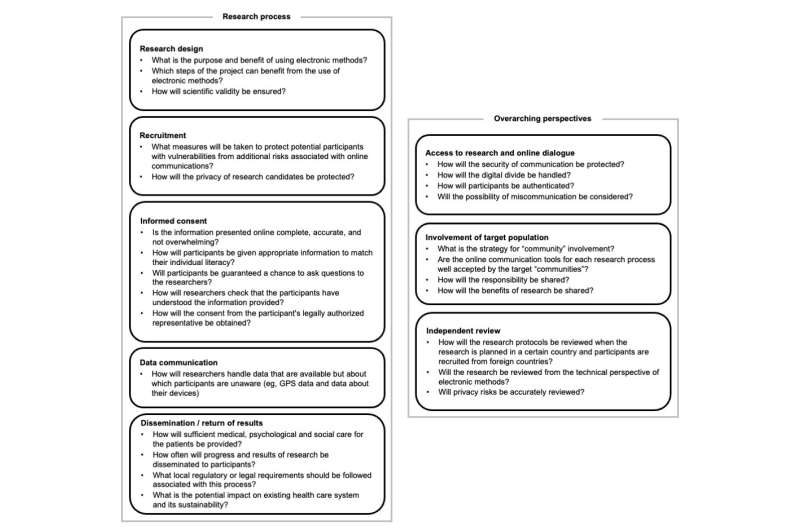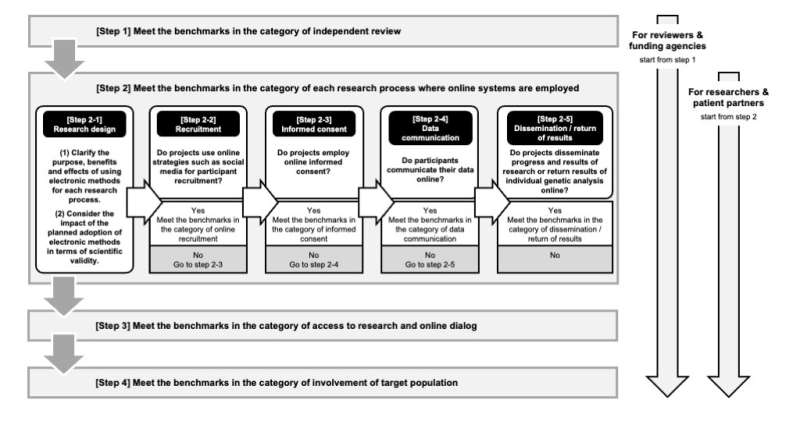Ethical communication for medical research in the age of information

Since its inception, the Internet has fundamentally changed all parts of human society for both good and ill, and medical research is no exception. The fast pace of change enabled by digital technologies means that ethical guidelines may not address all the issues that arise in modern research. To help solve this problem, researchers from Osaka University performed an ethical analysis based on the eight ethical principles for clinical research and they proposed an ethical framework and practical guidance for communicating with research participants through the Internet.
The ability to recruit study participants regardless of geography is a major advantage of electronic communications, such as for studies of rare diseases, where it is often difficult to find enough participants in a defined geographic area to ensure scientific validity. However, the ease and scale of electronic communications has also led to serious problems such as violations of privacy, duplicate registrations, and misinformation that existing ethical guidelines didn't anticipate.
"Currently, there are no comprehensive rules or guidelines for the various electronic methods used to communicate with research participants," says Atsushi Kogetsu, lead author of the study, "and that includes methods for collecting electronic informed consent and online recruitment." Hence, the authors performed an ethical analysis to determine what the issues are and how they relate to each other.
The analysis is based on the Emanuel framework, which consists of eight ethical principles for clinical research: collaborative partnership, social value, scientific validity, fair participant selection, favorable risk-benefit ratio, independent review, informed consent, and respect for participants. For instance, the researchers found that although there are many advantages to online communications, it is important to consider how patient access to the Internet varies according to circumstances and culture, which could affect participant recruitment, leading to selection bias.

"We also need to be careful how we present information to study participants," says Kazuto Kato, co-author of the study. "It's important to remember that the lack of nonverbal information when using some online tools can lead to miscommunication. We need to make sure that information is complete and accurate but not overwhelming."
The proposed framework covers both the specific processes involved in medical research (from research design to the dissemination of results) and three overarching perspectives (access to research, community involvement, and independent review). It provides the practical steps independent reviewers, funding agencies, researchers, and patient partners can use to ensure all ethical guidelines are followed. The researchers believe the results of this study and its framework will improve future practice in medical research using the Internet.
The research was published in the Journal of Medical Internet Research.
More information: Atsushi Kogetsu et al, Framework and practical guidance for the ethical use of electronic methods for communication with participants in medical research, Journal of Medical Internet Research (2022). DOI: 10.2196/33167




















